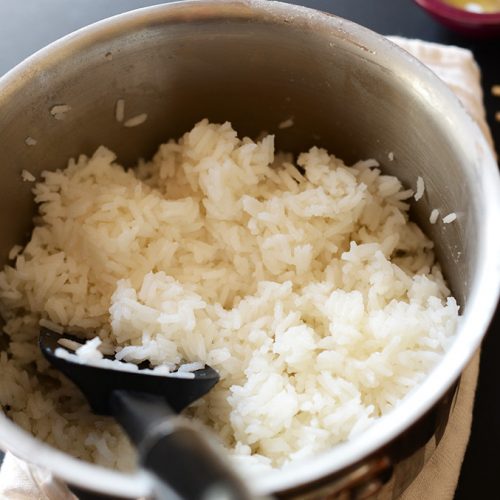
Keto diet programs, Mediterranean weight loss plans, fasting diet programs — there are so many possibilities out there for individuals that want to shed weight.
Nevertheless, picking a meals are tough how do we know what one will continue to work ideal for us, or maybe if the diet program work at all?
Experts with the Stanford College Institution of Medication in Cal recently conducted a report checking out a single key part of this "best diet regime" question — whether very low-excess fat or reduced-carb diet plans will be more successful.
What guide study writer Prof. Christopher Gardner and co-workers located, nonetheless, may only create the matter more difficult.
"We've all observed stories," claims Prof. Gardner, "of any close friend who continued one diet — it worked great — after which another good friend experimented with exactly the same diet regime, and it also didn't work on all. It's due to the fact we're all different, and we're just starting to be aware of the reasons behind this variety."
" Probably we shouldn't be requesting what's the most effective diet program, but what's the most effective diet for whom?"
Prof. Christopher Gardner
Prof. Gardner and group worked with 609 people aged 18–50, by having an almost 50:50 men-to-woman ratio. The members were actually divided into two groups and randomly assigned certainly one of two diets: lower-carb or lower-excess fat. All of the study individuals followed their given diet plan to get a complete season.
The results of your researchers' review are published in the journal JAMA.
Select normal foods
So that you can acquire a far better knowledge of the standards that may drive putting on weight and weight reduction, Prof. Gardner and team also sequenced the participants' genomes. By doing this, they looked for gene styles that they could relate using the efficiency excess fat or carb metabolic rate.
One more test measured each of the subjects' levels of insulin, that have in the past been related to excess weight in some individuals.
For your first 8 several weeks of their individual diet programs, the participants have been expected to consume a maximum of 20 gr of either fats or carbs per day. This, the creators clarify, would be the equivalent of 1 plus a half slices of complete-whole wheat loaves of bread (for carbs) or a large couple of nuts (in the case of body fat).
From your second four weeks in their diet onward, the contributors were actually permitted to make adjustments as needed, introducing rear 5 –15 grams of either carbohydrates or excess fat, bit by bit.
The intention of these adjustments would be to let the members to attack a nutritious balance that they could be secure sticking with in the long term, past the "confines" in the review.
"We wished for these to opt for," affirms Prof. Gardner, "the lowest-extra fat or reduced-carb diet regime that they could potentially stick to permanently, as opposed to a diet plan that they'd drop when the study ended."
Since the 12 months drew to a close, all those who had previously been after a lower-body fat diet had a day-to-day fat consumption of 57 grams on average, in contrast to 87 grams per day just before the beginning of the investigation. Individuals over a low-carb diet had a everyday carb intake of roughly 132 grams, vs . 247 gr prior to the examine started.
Participants shed about 13 lbs over the 1-calendar year time. The experts have been pleased about the influence that this study had around the participants' nutritional health, worrying that certain of its principal achievements was to get them to switch to healthy sources of fatty acids and carbohydrates.
"We ensured to inform everybody," adds Prof. Gardner, "irrespective of which diet program they were on, to visit the farmer's marketplace, and don't acquire highly processed efficiency food items. Also, we encouraged them to diet regime in a manner that didn't make them experience hunger or deprived."
Review 'opens the door' to help concerns
After determining participants' baseline insulin levels and weight loss advancement through the entire examine, the researchers noticed that even though they had all transitioned to far more beneficial eating habits, there is nevertheless plenty of personal variance whenever it arrived at weight-loss.
As a result, while many individuals misplaced greater than 60 lbs, other individuals acquired 15–20 weight. Even so, they were struggling to locate any back links involving gene styles or blood insulin output as well as a person's chance of flourishing on a lower-excess fat compared to reduced-carb diet.
"This study closes the doorway on some concerns — nevertheless it paves the way to others. We have gobs of data that people can use in second, exploratory scientific studies," Prof. Gardner notices.
The researchers' next step from this point, consequently, may be to look at all the various data gathered throughout the recent examine and attempt to understand how individual eating demands could possibly be determined later on.
"I continue to think there is an chance to learn some customization to it — now we just need to focus on tying the parts jointly," says Prof. Gardner.
In the meantime, the researchers persuade folks on a fat loss experience just to be a little more conscious in regards to what they consume, given that that will be the first step to some far more healthful way of life.
"On edges [discussing lower-carb and very low-body fat slimmers], we listened to from people who experienced dropped one of the most excess weight that people possessed assisted them transform their relationship to foods, and therefore now these people were more innovative about how precisely they consumed," Prof. Gardner concludes.

No comments:
Post a Comment